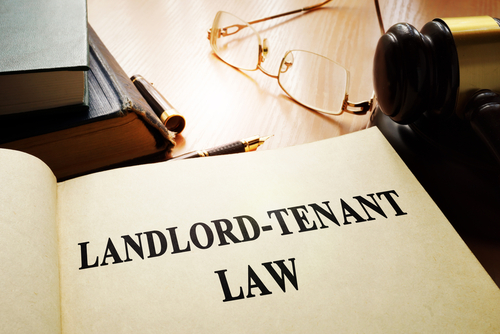HOMENEWS & INSIGHTS
Residential Landlord? Make sure you know your legal responsibilities.
Most people are aware that there are certain rules which landlords must follow when letting out residential property. What may come as a surprise are the penalties on landlords for not complying with these rules and how important it can be to keep a tenancy up-to-date. The newly published How to Rent Guide is a good example of this.
What are the penalties and what are they for?
Penalties range from fines for not correctly dealing with a deposit, to criminal offences for unlawful eviction. What we are looking at here may, at first glance, appear much less significant, being essentially a leaflet which can be downloaded, free of charge, from the government website.
So this isn’t serious then…?
As most experienced landlords and letting agents will know, it can be.
The starting point is that it is a requirement to provide to the tenant, at the beginning of the tenancy, a current copy of the:
- Gas Safety Register/Certificate (GSR);
- Energy Performance Certificate (or EPC); and
- How to Rent (HTR) Guide.
Failure to provide the above documents may give the tenant a certain security of tenure, which may hinder the landlord from, for instance, selling their property. Significantly, failure to do so means that a landlord may not be able to rely on the section 21 procedure if they wish to evict the tenant.
It is therefore crucial that landlords follow the rules and provide up to date copies of the above to their tenants at the outset of a tenancy and as may be appropriate – certainly before any section 21 notice is served on a tenant. As a new HTR guide has just been published, landlords should make sure that they are issuing the current copy and not an out of date version.
Wait, I won’t be able to evict the tenant to sell the property?
That is unfortunately possible. Currently, the alternative procedure to get a court order for possession is under section 8. For the most part, this procedure involves the landlord showing that the tenant is at fault in some way. It does not, as yet, provide for the landlord to evict a tenant simply because they want to sell the property.
That seems harsh…
The reasoning is that the GSR is for safety; the EPC provides information on how much it may cost to heat the property and the environmental impact of this; and the HTR Guide contains information on the tenant’s legal rights.
The new HTR Guide includes more recent (and thorough) information on matters including licensing requirements, tenant fees and deposits. This is potentially relevant to tenants, as the law has changed significantly since the last HTR Guide was published.
So, if a landlord complies with the rules, they will be able to use the section 21 procedure?
Yes, for the moment at least. The new HTR Guide refers to the potential abolition of the section 21 procedure. The government has been considering this for some time, but when and whether it will actually happen has not been confirmed. The events of this last year have diverted government attention away from this type of law reform. It seems likely that this will remain the case for much of 2021, or possibly significantly longer.
It has been suggested that a new provision allowing eviction in cases of the sale of property will be included, most likely within section 8, but this is not yet certain. For now, the safest option is to follow the rules, try to make sure tenancies are compliant from the outset and that they remain so each time any changes or updates take place.
If you or your business needs any assistance in navigating the rules surrounding residential tenancies, from starting one to recovering possession at the end of a tenancy, please contact our team today and we will be happy to help.
Share article
Our offices
Contact Us
5 Poole Road
Bournemouth
Dorset
BH2 5QL
Tel 01202 377800
9 Poole Road
Bournemouth
Dorset
BH2 5QR
01202 377800


